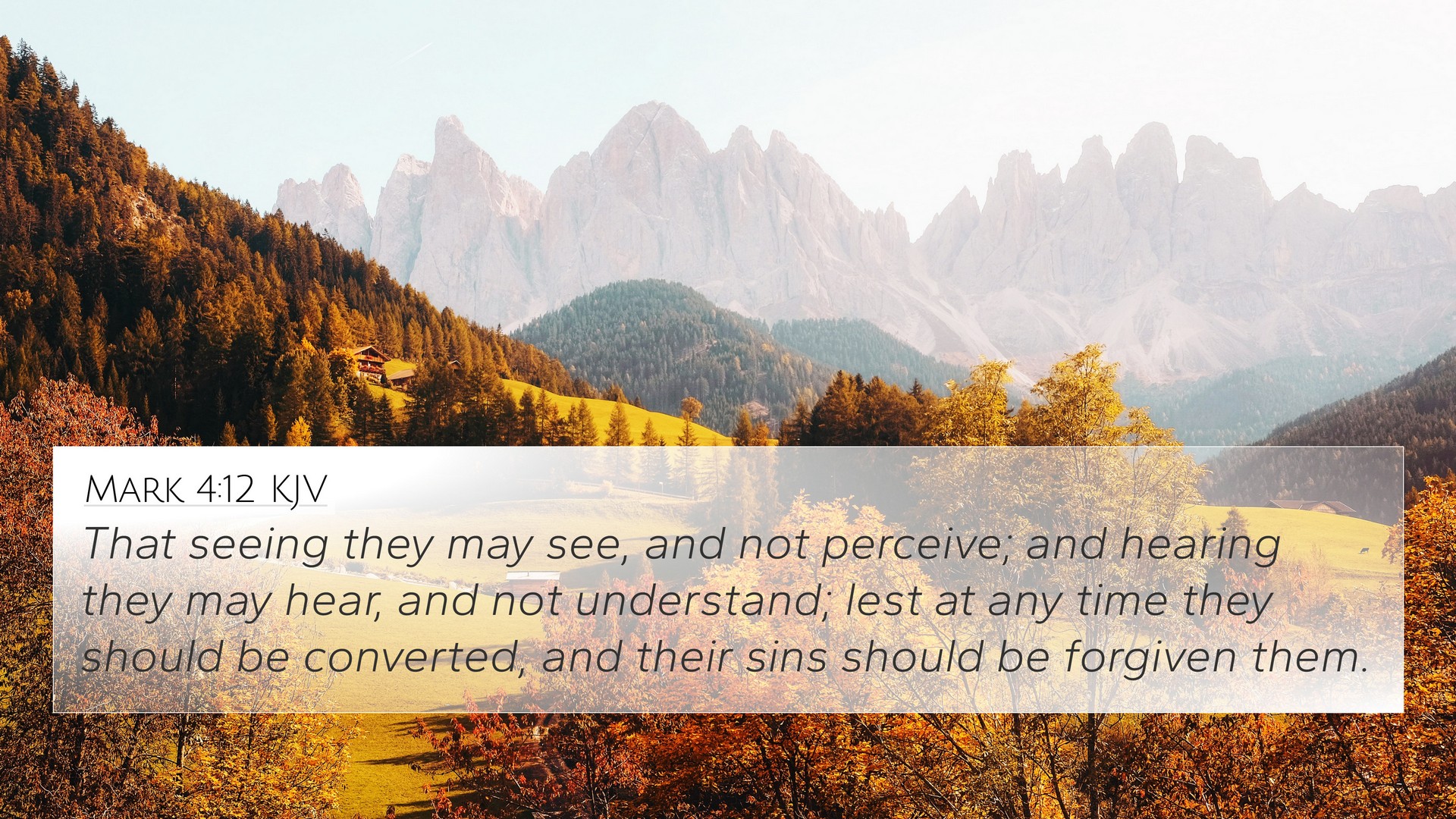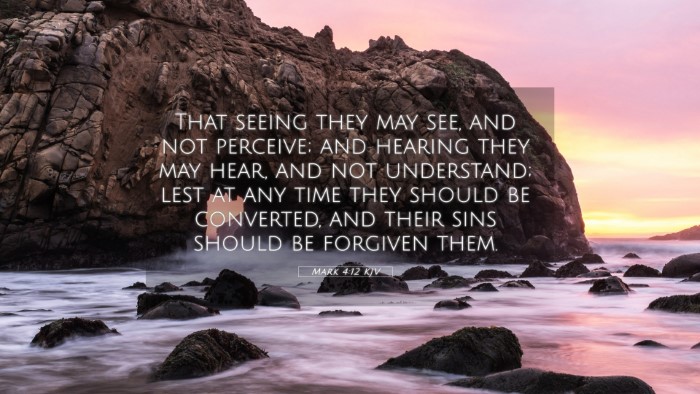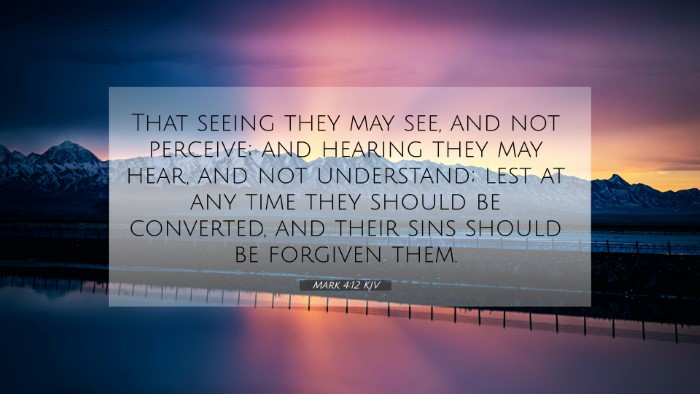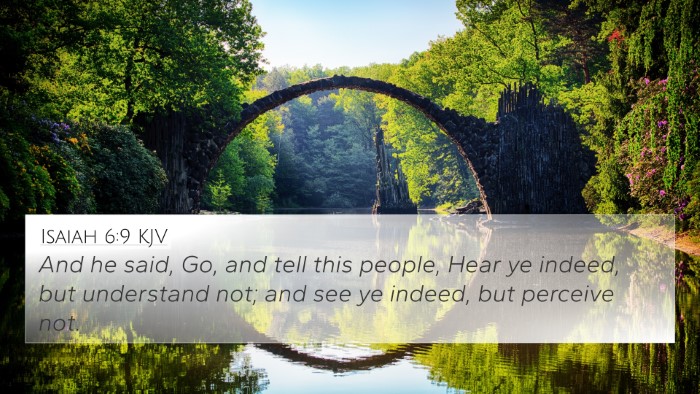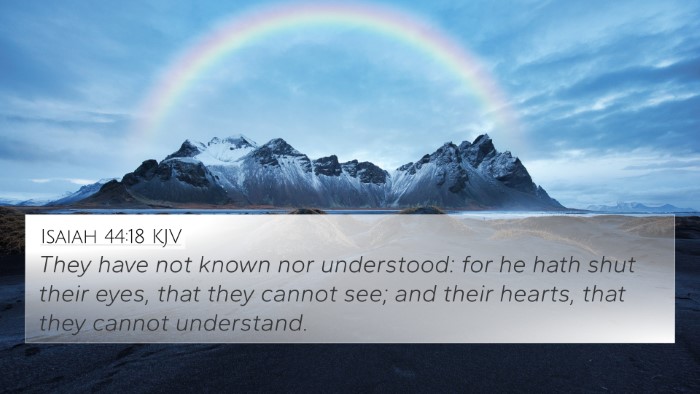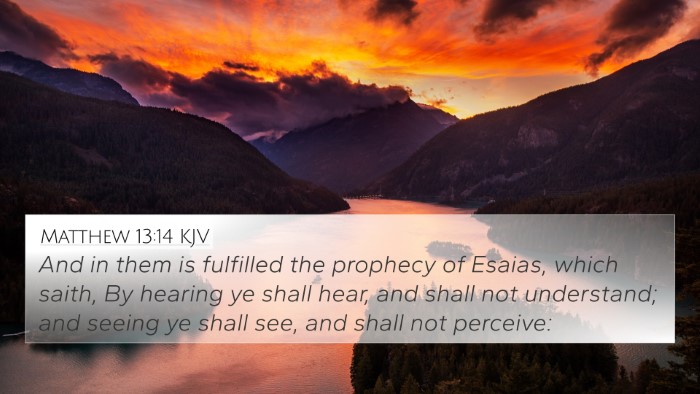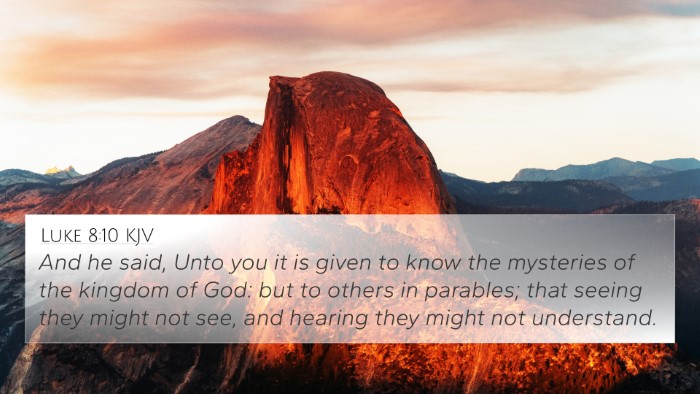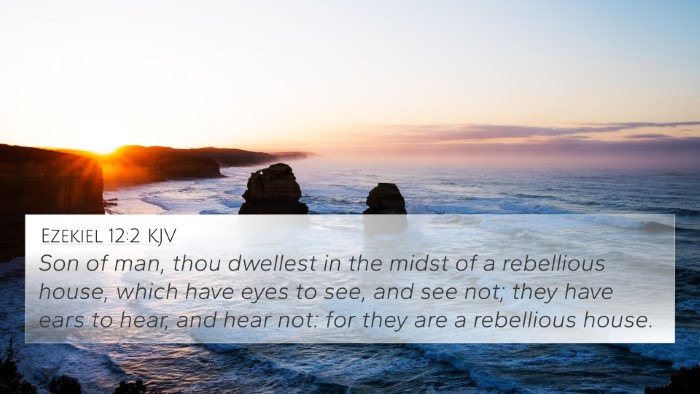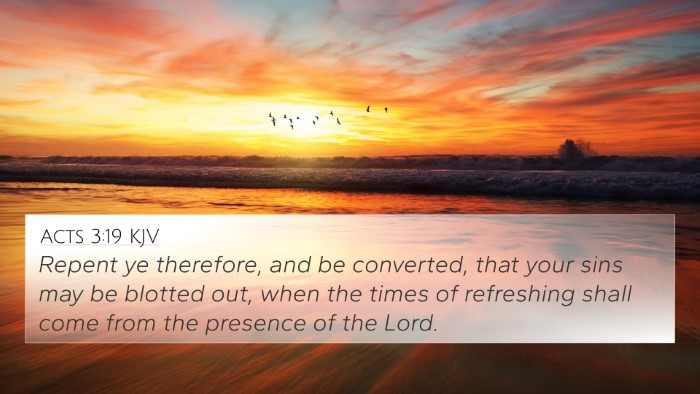Understanding Mark 4:12
Mark 4:12 states: "So that seeing they may see, and not perceive; and hearing they may hear, and not understand; lest at any time they should be converted, and their sins should be forgiven them."
Verse Context and Meaning
This verse occurs within Jesus' teachings about the Parable of the Sower. The statement reflects a profound truth about human perception and spiritual understanding. The purpose of parables, as indicated by Jesus, is to reveal truths to those who are open and willing to hear, while simultaneously concealing them from those who are indifferent or resistant.
Commentary Insights
- Matthew Henry: He elucidates that this verse points to the judicial hardening of some people's hearts. Those who are indifferent to the truth of God will find their ability to understand diminished. The marred perception signifies not mere ignorance but a willful rejection of divine knowledge.
- Albert Barnes: Barnes emphasizes that this verse manifests God's justice; those who have turned away from enlightenment will be reinforced in their darkness. The repeated opportunities to hear the truth, yet persistently rejecting it, lead to a significant loss of insight and understanding.
- Adam Clarke: Clarke discusses that the phrase "at any time" implies that there are occasions for change and repentance which people can miss if they remain blinded by their sin. He suggests that the emphasis on hearing and seeing is indicative of spiritual blindness and deafness prevalent among the indifferent.
Thematic Connections
Mark 4:12 can be seen as a gateway to deeper themes within Scripture regarding listening, understanding, and the nature of God's revelation. Below are some related themes and Bible verses that support the understanding of this passage:
- Isaiah 6:9-10: This Old Testament verse echoes the theme of spiritual blindness and deafness, where God tells Isaiah to go and declare His message, knowing many will not perceive it.
- Matthew 13:14-15: In a parallel account, Jesus reiterates the fulfillment of Isaiah's prophecy about the hardened hearts and minds of the people who hear but do not understand.
- John 12:40: Here, John quotes Isaiah, illustrating that God has blinded the eyes of the people, further elaborating on the consequences of rejecting the light of truth.
- Romans 11:8: Paul alludes to this same idea, mentioning that God has given them a spirit of slumber. This highlights the continual struggle between light and darkness in understanding divine truths.
- 2 Corinthians 4:3-4: Paul explains that if our gospel is veiled, it is veiled to those who are perishing, stating that the god of this world has blinded the minds of those who do not believe.
- Hebrews 5:11-14: This passage speaks to the need for maturity in understanding spiritual truths, warning against remaining as infants in faith that are untrained in righteousness.
- Acts 28:26-27: The Apostle Paul quotes Isaiah here, demonstrating the ongoing implication of spiritual hardness among the people he is preaching to.
Cross-Referenced Insights
As we dig deeper into the connections between Bible verses, we find many inter-Biblical dialogues concerning the themes of perception, understanding, and the consequences of spiritual negligence:
- Understanding through Parables: Matthew 13:10-13 discusses how the disciples questioned Jesus about why He taught in parables, indicating that understanding is given to those who seek.
- The Nature of Hearing: James 1:22 emphasizes being doers of the word and not merely hearers, which links to Mark 4:12 about true understanding leading to action.
- Spiritual Enlightenment: Ephesians 1:17-18 discusses the importance of the eyes of the heart being opened to understand the hope to which one has been called.
- Revelation in the Spirit: 1 Corinthians 2:12-14 contrasts those who have the Spirit of God and can understand spiritual things, versus those who discern only in the flesh.
Tools for Bible Cross-Referencing
Utilizing tools for Bible cross-referencing can enhance understanding of verses like Mark 4:12. Here are some recommended methods:
- Bible Concordance: A comprehensive concordance allows for easy location of verses and their cross-references, making thematic studies more accessible.
- Cross-reference Bible Study: Engaging in a structured cross-reference study promotes deeper connections between seemingly disparate verses.
- Bible Reference Resources: Various study Bibles come equipped with footnotes and reference lists that pinpoint connections across the text.
- Inter-Biblical Dialogue: Developing skills in comparing texts from both Old and New Testament fosters a holistic comprehension of Scripture and its unified narrative.
Conclusion
In understanding Mark 4:12, we uncover significant layers that speak to the human condition regarding spiritual insight and the nature of God’s revelation. By engaging with public domain commentaries and cross-referencing relevant Scriptures, we can appreciate the breadth of God's message, the crucial need for openness to His voice, and the implications of ignoring His word.
